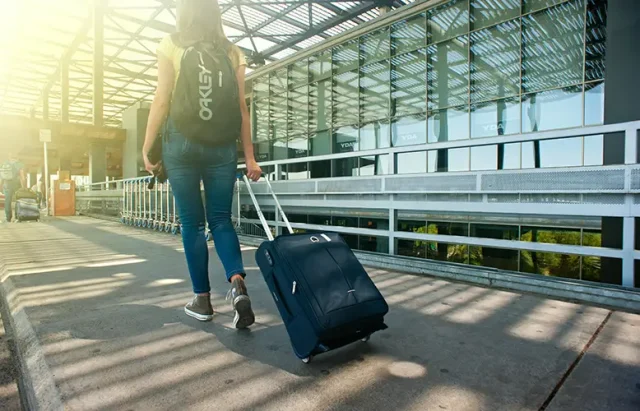
Unexpected trips can quickly add up—flights, lodging, transport, and essentials can strain even a careful budget. But with smart financial planning, travelers can stay prepared and avoid unnecessary stress when plans change on short notice.
By following a few practical strategies, it’s possible to manage surprise expenses confidently while still protecting your long-term financial goals. These tips provide a steady foundation for staying in control, no matter where life suddenly sends you.
1. Explore Financing Solutions Early
Consider researching financing options before an urgent trip becomes necessary. Many banks and credit unions offer short-term personal loans with predictable repayment terms that help cover travel expenses. These loans often provide lower interest rates compared to credit cards, which can make repayment more manageable over time.
At the same time, make sure to compare loan offers carefully to find the most competitive rate and minimal fees. Look for lenders with transparent terms that outline repayment schedules in plain language. Take CreditNinja.com, for example. This platform allows borrowers to set up fixed installment plans, which helps them budget confidently without worrying about fluctuating payments.
Getting pre-approved can also help. It speeds up access to funds in emergencies and offers a clearer understanding of your borrowing capacity. This preparation can reduce stress and improve decision-making. However, borrowers should remember that pre-approval doesn’t guarantee final approval, which still depends on a full review of credit and financial information.
2. Compare Options for Last-Minute Bookings
In addition to comparing lenders for financing, travelers should research multiple booking platforms to uncover better rates and flexible terms. Many websites offer discounts, such as price drops for late-night departures or bundled packages that include car rentals. This flexibility can significantly lower the overall cost of a sudden trip and create more room in the budget for other essential expenses.
A common misconception is that booking directly through a travel website always guarantees the lowest price. In reality, some providers hold back special rates for phone inquiries or loyalty members. Similarly, some travelers think flexible dates won’t make a difference, but shifting a trip by just one or two days can unlock significant discounts on premium options.
One helpful strategy is to bundle services whenever possible. Booking a hotel, rental car, and airfare together often secures a better rate than purchasing each separately. Travelers can also sign up for loyalty programs to earn credits toward future bookings. This approach keeps costs predictable and builds rewards over time without requiring extra effort.
3. Leverage Smart Payment Hacks
Using rewards points or miles can ease travel costs. Many credit cards let users combine points with cash, helping reduce out-of-pocket expenses. Checking your balance before booking shows what flights, hotels, or rentals your points can cover.
Activating limited-time credit card offers can also unlock instant savings. Some issuers provide temporary promotions, such as extra rewards for travel spending or statement credits that reimburse part of the purchase. These benefits often require activation through an online account or mobile app. Taking a few minutes to enroll ensures travelers don’t miss valuable discounts.
Another smart tactic is to split purchases across different cards. For example, a traveler can charge airfare to a card with strong travel insurance benefits and place hotel costs on a card that earns extra points. Dividing expenses this way maximizes rewards and keeps interest charges as low as possible. This strategy helps every dollar work harder without extra effort.
4. Use Hidden Travel Booking Tricks
Sometimes, searching in incognito or private browsing mode can help travelers avoid price increases triggered by repeated searches. Booking platforms sometimes track browsing history and raise fares when they see the same itinerary multiple times. Opening a private window before comparing options keeps pricing consistent and prevents hidden markups.
Cashback portals are another overlooked resource for last-minute bookings. Instead of visiting travel sites directly, shoppers can go through a cashback platform that offers rebates on hotels, flights, and car rentals. These rebates often appear as cash or reward points after checkout. Over time, these small amounts can add up to significant savings.
Travelers can also look for error fares, which are deeply discounted rates published by mistake. Dedicated websites and apps track these rare deals and send alerts when they appear. Acting quickly is key because error fares often vanish in hours. This trick can lead to dramatic savings on flights and premium accommodations that would otherwise be out of reach.
5. Evaluate Essential Versus Optional Costs
Prioritize essential travel expenses before spending. Focus on necessities like transportation, lodging, meals, medical costs, and required documents (e.g., visas or permits) to avoid overspending on non-essentials. Nonessential expenses, in contrast, often involve entertainment, luxury dining, premium seating, souvenirs, or spa services that add comfort but strain the budget if left unchecked.
Understanding these categories helps travelers avoid impulse spending that drains resources quickly. When a trip arises suddenly, clear priorities protect other financial commitments and reduce stress. Recognizing that not every expense adds value makes it easier to say no to unnecessary purchases. This awareness also improves confidence when setting spending limits.
One practical tip is to create a detailed checklist before departure and label each item as essential or optional. Use apps or spreadsheets to track costs in real-time and review spending at the end of each day. Another helpful approach is to set a daily cash limit for nonessential purchases, which reinforces discipline and keeps the budget on track.
When to Seek Help?
Unexpected travel can feel overwhelming, especially when the expenses start to outpace available funds. If paying for a trip means skipping essential bills or turning to high-cost credit, it’s a good time to ask for help. Speaking with a financial advisor or a trusted credit counselor can ease the pressure and offer reassurance. Remember, you’re not alone. Support is always available.
Preparation Turns Chaos Into Control
Unexpected travel doesn’t have to derail your financial stability. With a proactive mindset and the right strategies—like comparing options, using rewards, and setting spending limits—travelers can manage last-minute expenses without panic. Preparation is power, and even a few small steps can make a big difference when plans suddenly shift.





